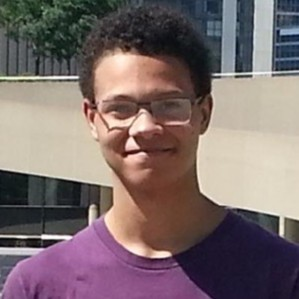How Can Ph.D. Students Make the World a Better Place? By Sharing their Research with Decision-makers

Guest Post by Nicholas Pape
In June 2022, I journeyed to Washington DC along with some of the trainees in the BU URBAN Program. During the trip, we met with legislative aides to members of Congress as well as representatives of nonprofits in order to learn about the types of work that they focus on and develop our professional networks outside of academia. I left with a reinvigorated understanding of how Ph.D. students such as myself could contribute to making the world a better place through my research, and here’s the story of how it happened.
Some of us had the opportunity to meet with Joe Valente, a staffer for Representative Jake Auchincloss (MA-4). We shared our research topics and interests, and Joe informed us of policy areas of focus for Rep. Auchincloss. Some of these areas included scientific research funding, clean energy tax credits, and offshore wind expansion. As a Ph.D. student in BU’s Earth and Environment Department, and an URBAN trainee, I do climate change economics and policy research. In light of this, I asked Joe how I can help Rep. Auchincloss achieve policy successes in the areas of clean energy tax credits and offshore wind expansion. Joe gave me his contact information and said that if I were to obtain research results that could be of use to the congressman, I should reach out to him.
I garnered similar responses in the two meetings I attended afterwards with Bre Sonnier-Thompson and Vandan Patel, both of whom work for Senate Majority Leader Chuck Schumer (NY) and Ashley Bykerk. Ashley works as legislative counsel to Representative Katherine Clark (MA-5). Overall, they seemed open and willing to listen to Ph.D. students regarding their research if it would benefit their respective congresspersons and the constituents they serve.
After our meetings with members of Congress, a few of us had the opportunity to meet with Claire Richer, the Director of Offshore Wind for the American Clean Power Association (ACP). ACP is a national trade association focused on enabling the transformation of the U.S. power grid to a low-cost, reliable and renewable power system. We had a robust conversation about the intricacies of wind power regulatory policy as it relates to her work in promoting offshore wind expansion. Regarding my own research, we discussed the effectiveness of carbon pricing mechanisms in incentivizing the growth of the wind power sector, as well as other clean energy sectors. Upon asking Claire how I, as a Ph.D. student who does climate change research, can help ACP achieve its goals, she informed me that the best way for Ph.D. students to help organizations like ACP is by producing research results that are directly connected to their specific objectives. Claire illustrated that while many research papers focus on real world problems such as climate change and pandemics, they can often be abstract, and not always directly useful to organizations on the ground trying to achieve tangible change.
I then met with representatives of Resources for the Future (RFF), a nonprofit that conducts independent economics research into environmental, energy, and nature resource issues. I met with Kristin Hayes, the Senior Director for Research and Policy Engagement, Marc Hafstead, a fellow and the Director of the Carbon Pricing Initiative, and Maya Domeshek, a senior research analyst. We had an amazing discussion about the carbon pricing research that RFF is currently working on, as well as how RFF uses its research to inform and influence broader climate change policy. They seemed receptive to hearing about my research given its direct relevance to theirs.
Ph.D. students typically do not produce research with the specific goal of directly helping specific members of Congress or nonprofit organizations. However, there is an urgent need for academic research that tackles real world problems and a growing number of Ph.D. students doing this research. If more Ph.D. students were to reach out to congressional staff and representatives of organizations with their research publications along with briefs of their results tailored to them and their objectives, those end-users would be more likely to actually utilize the research to enact more effective, data-driven, positive societal change. I’m looking forward to sharing my research with decision-makers throughout the course of my Ph.D in pursuit of generating societal good. The time has come for researchers to start actively working with stakeholders outside of academia to create a better tomorrow.